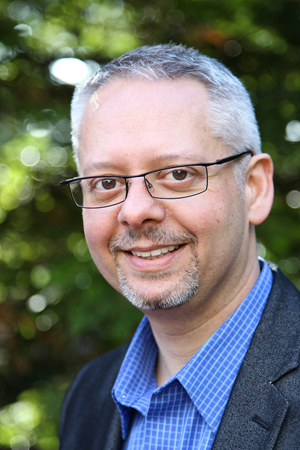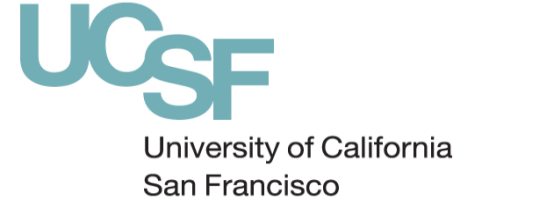Great Manager Profile: Kevin Souza
Great Manager Profile: Kevin Souza
Kevin Souza is not new to managing people. His first experience was 25 years ago as a manager of a basic science research lab in endocrinology.

Kevin Souza
Now, in his current role as the assistant dean of Medical Education in the UCSF School of Medicine, he is responsible for unifying the geographically dispersed medical education administration, with approximately 60 staff members making up the team.
But it is not Souza’s years of experience or the breadth of his role that makes him such a great manager, it is his commitment to inclusivity, fairness and innovation. In 2010, he was the recipient of the Chancellor’s Award for Exceptional University Management. It is not a honor that Souza takes lightly. “It was the greatest moment of my professional career,” he says.
Other great moments are more personal: the birth of his son and marriage to his husband.
Born in Clarksville, a small town on Tennessee’s northern border, Souza grew up on a 400-acre family farm. “We grew cash crops like corn and much of our own food,” he says. “We slaughtered our own pigs and chickens.”
From these rural beginnings he embarked on a career in science, earning his B.S. degree in Biology at Austin Peay State University and an M.S. degree in Biology from Vanderbilt University. After earning his graduate degree, he taught biology at Vanderbilt and at Chancellor College in Malawi, Africa, as a US Peace Corps volunteer. Souza then returned to Vanderbilt before coming to UCSF in 1993.
While at UCSF, he has served as a lab manager in the Department of Psychiatry and an information officer in medical education. In 2000, Souza became director of Educational Technologies and then in 2008, the first assistant dean for Medical Education. The same year, he was among the first to participate in UCSF’s Leadership Development Program, which continues today.
Responding to Employee Survey
“The position [of assistant dean] was created as a result of a 2007 employee satisfaction survey,” Souza says. The survey results indicated that medical education scored below the rest of the campus in several areas. Staff identified inequitable pay and poor communication throughout medical education as areas that needed to be addressed. As a result, equity reviews were held for all medical education; these reviews have become standard practice occurring every two years.
Also, a communications committee was formed which resulted in the creation of the medical education blog, website, and other communication vehicles. In addition, to those changes, the position of assistant dean position was created, a role that would serve to unite medical education across the University. Souza notes with both modesty and a sense of satisfaction, “the most recent employee engagement survey results showed us that we have been successful in improving in these areas.”
The results of the recent employee engagement survey brought some other things to light as well.
“Our lowest score was in`having a best friend at work’,” Souza says. While many in the group were critical of the question and wondered about the value of the results, Souza saw it as an opportunity. Taking up the Chancellor’s mandate to review the results and develop a plan, Souza notes in his quietly passionate way that Medical Education launched a wiki site with team survey results and resources, unit managers facilitated discussions of the results within their teams, and all staff came together for a workshop to develop engagement strategies.
At the beginning of February, the entire staff came together again to create a plan using Gallup’s engagement pyramid of four key areas: basic needs, individual contribution, teamwork and growth. The strategies that emerged from this process were:
- Develop skills in all staff to cope with an ever-changing environment (basic needs)
- Develop robust staff profiles to educate other about what each of us contributes (individual contribution)
- Develop personal mission statements aligned to medical education at UCSF (teamwork)
- Develop a buddy system for new and continuing staff (growth)
Bonnie Hellevig, director of Educational Data, notes that the group really embraced the opportunity to look at teamwork and engagement. She attributes much of this to Souza’s leadership.
“He has a great way of envisioning what could be,” she says. “Something good always comes out of it.”
Hellevig sees the highly focused and inclusive process as one that ensured both positive outcomes and the empowerment of the entire medical education group. “Everyone is included and hopefully will be more engaged with each other as a result.”
Chandler Mayfield, director of Tech Enabled Learning, notes that the campus set forth very basic expectations for the engagement survey results. Instead, Souza took the opportunity to address something that was important. “He embarked on a very ambitious plan and process, focusing resources — in a time of compressed resources – to create the best possible outcome, one that staff really owned.”
Creating an Environment Where People Succeed
For Christina Cicoletti, director of the Clinical Learning Unit, the process reflected the culture of medical education under Souza’s leadership. “Medical education is amazing and such an inspiring place to be,” she says. “Having an assistant dean that isn’t a PhD or an MD is inspirational because it makes us feel that with hard work and dedication any of the staff could achieve a leadership position of that level someday.”
But the most important element to Cicoletti is the mentorship and authenticity that Souza brings to the group. “He is one of the best teachers I ever met in my life. He can explain what is going on at a very high level in a way that enables all to understand. Transparency is really important to him; it is one of his guiding principles. This helps us know what is going on and we feel connected.”
When asked what he learned as a result of the engagement survey, Souza says, “What was reinforced is that I don’t know everything; I really rely on the talent of my team. And too, I learned that we are doing a lot of things right.”
What drives Souza’s commitment to his staff is the same thing that drives his commitment to UCSF. “When I think of UCSF, I think of the most innovative health care institution in the world,” Souza says. “In medical education, I try to support this innovation by honoring what motivates my staff and giving them the room to take their careers in new directions. To me this is directly connected to creating and sustaining an innovative healthcare environment.”
For Cynthia Ashe, manager of the Haile T. Debas Academy of Medical Educators, the source of Souza’s success and that of his team is quite simple. “Kevin leads by example,” she says. “He maintains an open mind and a goal-oriented forward focus. He hires good people and mentors them. He is creating an environment in which people succeed.”
No matter what the goals are for the organization, Souza says, the greatest impact comes from honoring people and their skills. “It goes a long way to creating a happy, healthy, productive, innovative environment.”
Editor’s Note: This is the second profile in an occasional series to highlight UCSF’s great managers as determined by scores in the 2011 employee engagement survey administered by Gallup.
Photo by Susan Merrell
###
> About University of California, San Francisco (UCSF).
The University of California, San Francisco (UCSF) is a leading university dedicated to promoting health worldwide through advanced biomedical research, graduate-level education in the life sciences and health professions, and excellence in patient care. It is the only UC campus in the 10-campus system dedicated exclusively to the health sciences.
More about University of California, San Francisco (UCSF).
More about University of California, San Francisco (UCSF). Information.
###
* The above story is adapted from materials provided by University of California, San Francisco (UCSF)
________________________________________________________________



















